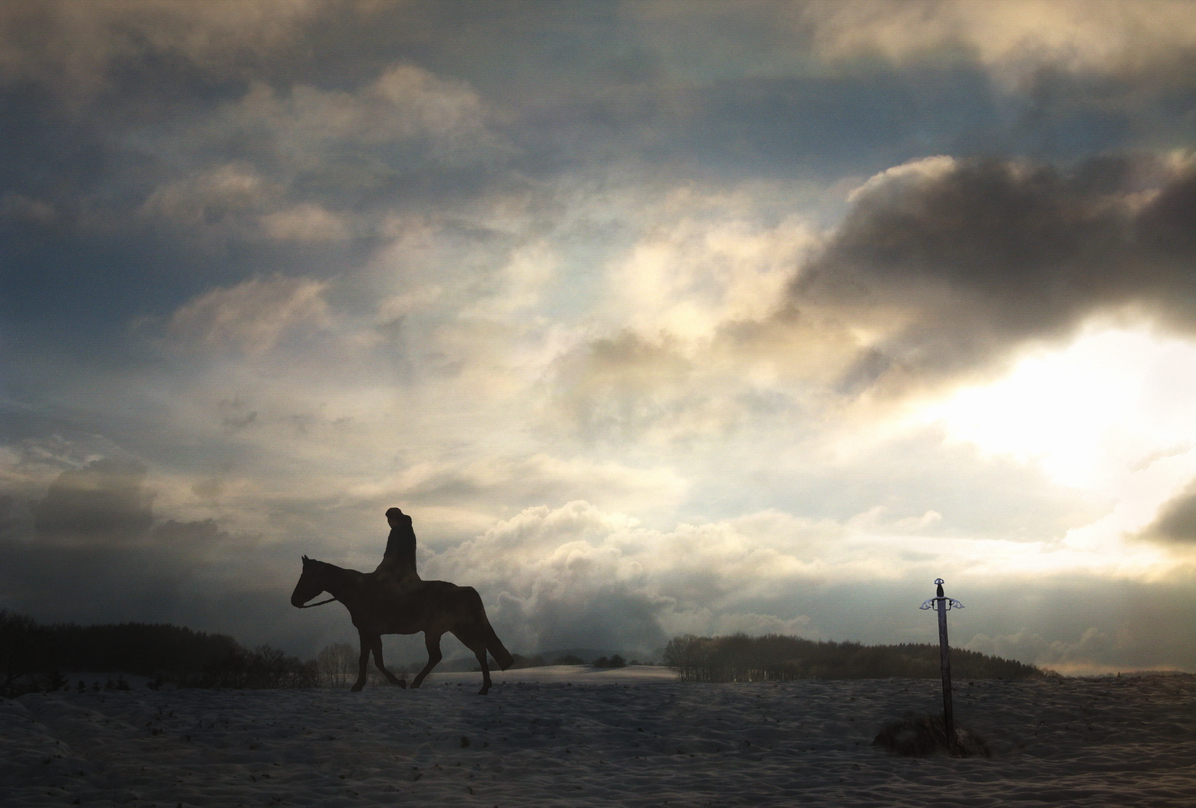
Having grown up as children of this age, most of us would identify a hero as one who risked and sacrificed much - most notably his life - for the well-being of others. It's a definition deeply rooted in the Christian concept of love (John 15:13) and firmly fastened, even in non-believing American culture, by the weight of tradition - tradition that gave birth to our country as the founding fathers signed their death warrants to stand for the better future of coming generations. Of course, heroism as we know it today didn't begin with Declaration of Independence any more than the shifting definitions of our culture are original to the 21st century. Powerful deity-claimers, adept warriors, chivalrous nobles - all have, at some point in history, asserted this title. From whence have these claimants come, and have we begun, once again, to accept their less-than-worthy definitions?
In his fascinating study, The Book That Made Your World, Vishal Mangalwadi identifies three main phases of conceptual heroism: the classical hero, the medieval hero, and the modern hero. Classically, Mangalwadi observes, the Greco-Roman world lauded whoever held the greatest power. Requiring absolutely no moral guidelines or conscience, the "heroes" of this era (Alexander the Great, the Caesars, etc) were evil, self-absorbed, oppressive murders, able to claim deity and the right to be worshiped merely by virtue of their power. Evidence of this warped definition is further seen in the Greek mythologies, whose gods were good or evil as they liked (mostly the latter) and immoral, yet worshiped for the power they held. The classical era was a hopeless time for heroes.
Medieval heroism improved little upon the classical definition, the church's ornamental modifications failing still to address the heart issues of self-denial and elitist, upper-class superiority complexes. In exchange for power-hungry dictators, knights were the worshiped idols of the day. Exhibiting vast ability with a wide range of weapons, these "heroes" were those who could kill the best, and often did so with little regard of friend or foe until the Catholic church began to intervene. It was not enough, insisted the church, to be a nobleman who was good with the sword; thus the words "chivalry," "honor," "bravery," and "loyalty," began to embellish the peoples' definitions. Yet, in the end, these heroes were still the powerful upper class: those able to cut down opposition and threats one moment and turn to awe and flatter with words and courtly graces the next. The medieval era was a dignifying and adorning time of the classical hero.
Then, suddenly, unsuspectingly, all the swirling facades of gallantry and heroism were cast aside as one truly heroic man stood before the culmination of all past professions of heroism. Mangalwadi points to Roland Bainton's Here I Stand as the most succinct representation of the moment:
"The scene lends itself to a dramatic portrayal. Here was Charles, heir of a long line of Catholic sovereigns - of Maximilian the romantic, of Ferdinand the Catholic, of Isabella the orthodox - scion of the house of Hapsburg, lord of Austria, Burgundy, the Low Countries, Spain and Naples, Holy Roman Emperor, ruling over a vaster domain than any save Charlemagne, symbol of the medieval unities, incarnation of a glorious if vanishing heritage; and here before him a simple monk, a miner's son, with nothing to sustain him save his own faith in the Word of God. Here the past and the future were met."Martin Luther, a lowly monk of no prominent family, with no merit save his faith in God and iron-will resolve to stand by the Scriptures, confronted head-on hundreds of years of heroic claims and proved them all wrong. He was the real hero of the moment, and the people, reformers, and ages to follow him would recognize and rally to this "new" depiction of heroism: one who stands for what is right, and for the rights of others, even at risk of his own life. The era of the modern hero, marked by Luther, was a time of imitating Christ's heroism.
to be continued...
{Hello all! I missed last week's post! (I claim illness.) To make up for this sorry omission, there will be two posts this week, the next one being on Thursday. :) }
PhotoCredit1
PhotoCredit2


2 comments:
i can't wait for it to get here so i can read it!!!!
I'm so glad you're giving me a glimpse into this fascinating book you've been reading! I never thought about the evolution of the hero, but I think the key is your last sentence: It was a time of imitating Christ's heroism. Now that is what truly defines a hero! I can't wait for your conclusion.
Also, I've read that biography of Martin Luther, and it was AMAZING! I loved it and learned so much!
Post a Comment